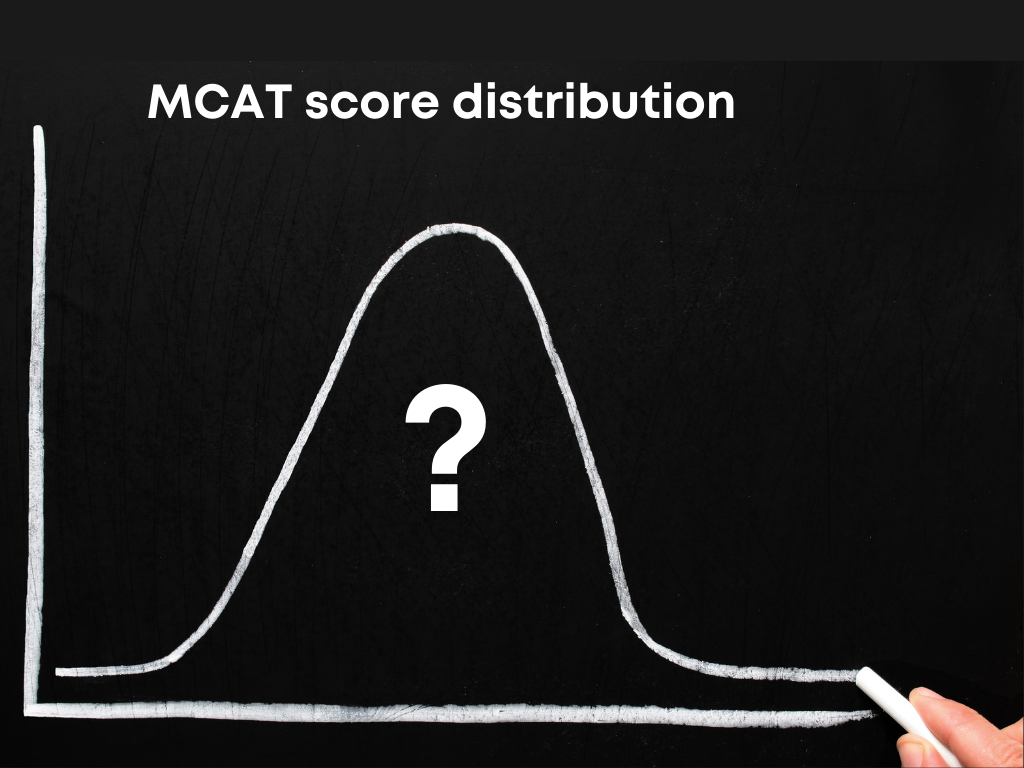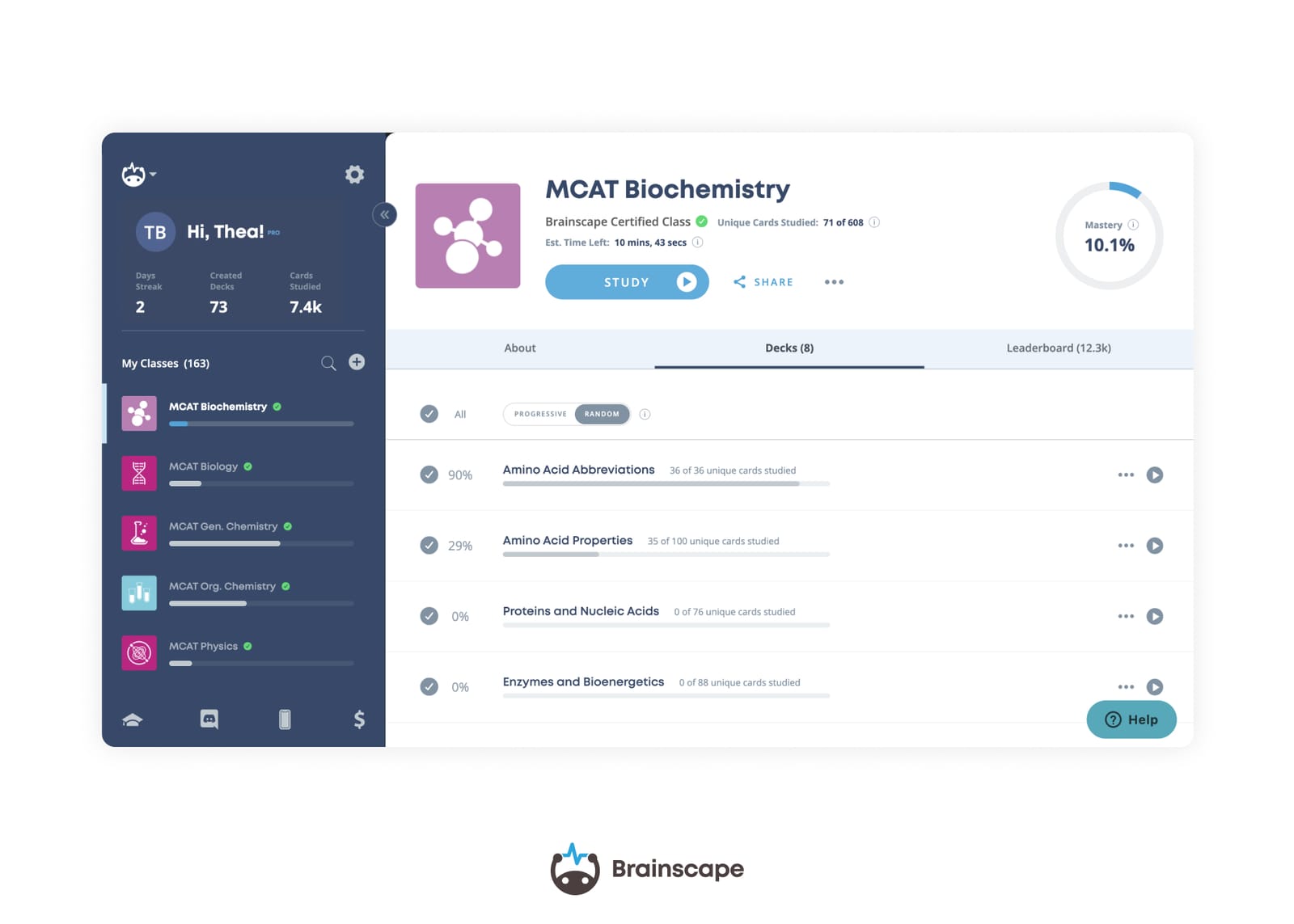As the medical college admissions test dawns upon your horizon, MCAT test scores become an obsession. With every study session and practice question, you imagine yourself clawing closer and closer to that ultimate goal post: a score that’ll get you into the medical school of your highest ambitions. The question is: What exactly are you aiming for here?
What Is A Good Overall MCAT Score?

In a nutshell, you’re aiming for at least the 90th percentile if you want to get into a top medical school. (We’re focusing on MD schools for this article, but doctor of osteopathy, or DO, schools are great options that tend to have lower mean MCAT scores.) Now, the percentile ranks provided on your MCAT score report show the percentages of test takers who received the same or lower scores on the exam than you did.
So, if 85,000 U.S. students take the MCAT in 2021, and you score in the 90th percentile, your score was higher than (or the same as, because some of these will also be in the 90th percentile bracket with you) 75,600 other applicants, with only 8,500 students doing better than you. (This is a bit of an oversimplification, mainly because the AAMC calculates percentiles over even longer periods, but it’s plenty good enough for our purposes.) Actually, scoring in the overall 90th percentile is excellent. So, aim for “excellent” and if you fall short of that, you land in the realm of “good”, which is great! Capisce?
For a deeper dive into this subject, check out this page on the AAMC website. I mean, they only wrote the dang MCAT, so they kinda know what they’re talking about.
Another component of an excellent MCAT test score is to have a decent spread of results for each section. In other words, try to avoid bombing psychology and sociology but then acing the rest. For the best results, you need an even distribution of good marks.
Now, let’s get a little more specific …
What Is A Good MCAT Score In Numbers?
It depends. Your scaled MCAT score depends only on your performance, not on how the other test-takers performed on that day or on how difficult your MCAT was. The AAMC puts in a huge amount of effort to control for these factors! However, percentile scores do depend on the overall population of test-takers over a given period. So average MCAT scores can and do increase over time, making it harder to get a top-percentile score, and this changes the landscape of what’s considered “excellent.”
On that subject, another factor to consider here is the application data from the school/s you’d like to apply to …
What Are The MCAT Score Requirements For Individual Schools?

The average MCAT score among successful medical school applicants lands around the 83rd percentile. Harvard University, NYU Grossman School of Medicine, and Columbia University only tend to entertain students with high MCAT test scores.
The good news is that most other medical schools will entertain MD applicants who scored at or above the 65th percentile, provided you can blow them away with the other admissions criteria, like your personal statement, GPA, and amazing clinical and research experience. But, in general, the higher your score on the MCAT, the better.
So, keep your sights on that 90th percentile, and even if you miss it, you’ll likely get the score you need to get into a great medical school.
Hey! Here Are Some MCAT Study Resources For You
Now that I’ve answered the question “What is a good MCAT score?” I have a few other resources I’d like to share with you that will likely be of great help.
If you prefer to consume your advice in video format (and to see what I look like, he he), head on over to Brainscape’s Medical YouTube channel. I’ve interviewed some incredibly experienced and accomplished humans in the realm of MCAT prep, med school admissions, like this one …
Finally, digital flashcard apps like Anki or Brainscape are an excellent tool for helping you learn the necessary facts twice as efficiently as traditional study methods, which is really essential when you consider the volume of content the MCAT tests (and that you may have forgotten quite a bit of it after making it through college finals).

How do they achieve this? Studying with flashcards engages a learning technique called spaced repetition. Your brain forgets 50% of the information that it sees in a day, so the only way to learn a concept is to engage with it repeatedly. That means returning again and again, just when you were about to forget it.
Digital flashcard apps like Brainscape or Quizlet automate the process of spaced repetition by organizing every concept you're studying and resurfacing it at the ideal moment for your learning speed. Adaptive algorithms are proven to significantly increase learning efficiency among medical students. Spaced repetition even helps working clinicians to meet their targets faster!
Add to this the fact that flashcards force you to engage in active recall, which means pulling the information out of your brain instead of merely recognizing it on a page of notes or a list of multiple-choice answers. Even if you got a flashcard wrong, the process of actively recalling information and then receiving feedback increases the efficiency of future learning!
They also boost your metacognition: how you think about your learning. With a single tap, you assess how well you know each flashcard, which improves your memory.
A study of 260 medical students showed that students who used spaced repetition doubled their test scores compared to a control group after just 29 days. So if you'd like to study faster and improve your scores in just one month, check out a digital flashcard app like Brainscape or RemNote and put yourself on the scientifically proven path to higher MCAT scores!
Additional Reading
- How To Study For The MCAT More Efficiently
- How To Choose Your MCAT Test Date
- Top Tips For Getting Into Your Chosen Medical Schools
References
Dobson, J. L. (2012). Effect of uniform versus expanding retrieval practice on the recall of physiology information. Advances in Physiology Education, 36(1), 6–12. https://doi.org/10.1152/advan.00090.2011
Ebbinghaus, H. (1913). Memory: A contribution to experimental psychology. New York: Teachers College, Columbia University.
Karpicke, J. D. (2012). Retrieval-based learning: Active retrieval promotes meaningful learning. Current Directions in Psychological Science, 21(3), 157-163.
Kerfoot, B. P. (2010). Adaptive spaced education improves learning efficiency: A randomized controlled trial. Journal of Urology, 183(2), 678–681. https://doi.org/10.1016/j.juro.2009.10.005
Kerfoot, B. P., Turchin, A., Breydo, E., Gagnon, D., & Conlin, P. R. (2014). An online spaced-education game among clinicians improves their patients’ time to blood pressure control. Circulation: Cardiovascular Quality and Outcomes, 7(3), 468–474. https://doi.org/10.1161/circoutcomes.113.000814
Kornell, N., Hays, M. J., & Bjork, R. A. (2009). Unsuccessful retrieval attempts enhance subsequent learning. Journal of Experimental Psychology: Learning, Memory, and Cognition, 35(4), 989–998. https://doi.org/10.1037/a0015729
Sadler, P., & Good, E. (2006). The impact of self- and peer-grading on student learning. Educational Assessment, 11(1), 1–31. https://doi.org/10.1207/s15326977ea1101_1
